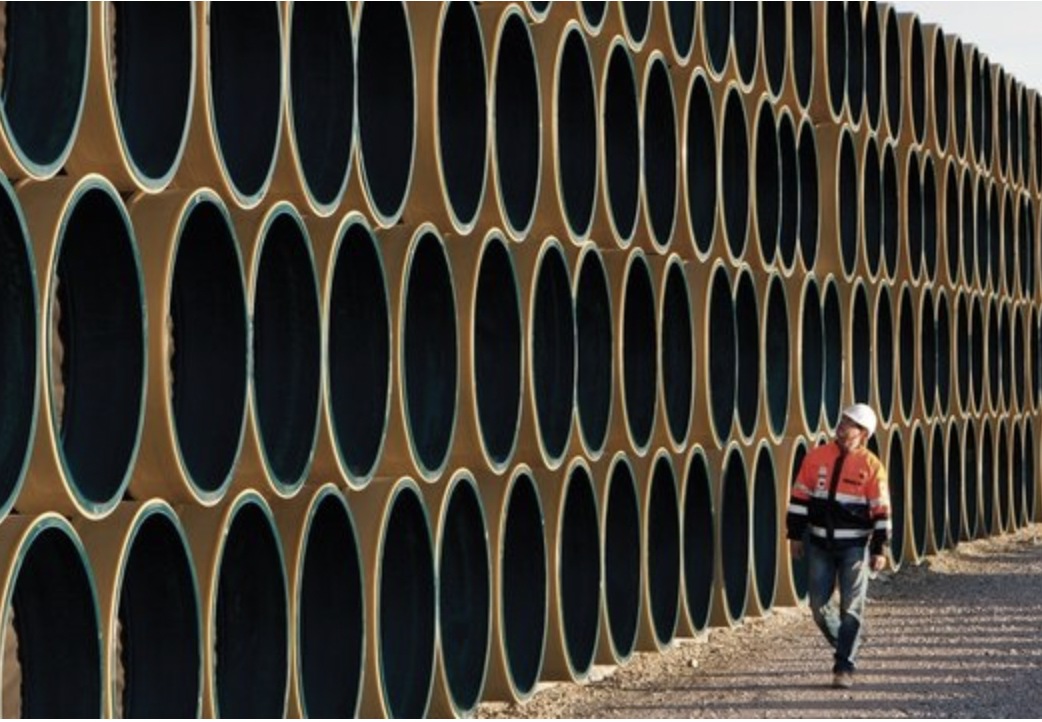Damaged Nord Stream 1 gas pipeline in re/insurance dilemma
25th October 2022 - Author: Kassandra Jimenez-Sanchez
As the mystery surrounding the explosions that damaged undersea gas pipelines between Russia and Germany remains unsolved, Nord Stream 1’s re/insurers are trying to figure out how to handle potential claims worth hundreds of millions of dollars, reports Reuters.
 According to industry sources familiar with the matter, Munich Re and syndicates within the Lloyd’s of London market are among the major underwriters for Nord Stream 1, the pipeline bringing gas to Europe under the Baltic Sea.
According to industry sources familiar with the matter, Munich Re and syndicates within the Lloyd’s of London market are among the major underwriters for Nord Stream 1, the pipeline bringing gas to Europe under the Baltic Sea.
They added that it was unclear whether they would renew its cover. If this is to happen, the possibility of the Nord Stream 1 ever being repaired and restarted becomes more remote.
Although no claims have been filed for the pipeline damage, sources told Reuters that Nord Stream 1’s underwriters could deny any submissions on the grounds of self sabotage or war, neither of which are generally covered by insurance.
There is still speculation regarding who was behind alleged sabotage hat severed the pipelines at the centre of an energy crisis prompted by Russia’s invasion of Ukraine. The only fact is that the damage was caused by powerful blasts, which was confirmed by Danish police.
Although damage would not affect the renewal of a property insurance policy, it could lead to higher premiums, according to Tim Shepherd, a Mayer Brown litigation partner.
Stakes are high for underwriters of the Nord Stream’s pipeline system, which according to its website, was built with €7.8 billion ($7.6 billion) of investment.
The news agency has not been able to identify all its underwriters. However, another source has said that Swiss insurer Zurich, also had exposure to Nord Stream 1.
“Even if you are taking a small size (of cover), it is a big risk,” one of the four industry sources said. It added, “The issue is going to be what happens if you can’t prove it is a state sponsor (responsible for the blasts), you end up with a massive claim for damage.”
Nord Stream 1’s major shareholder, with a 51% stake, is a subsidiary of Russian energy group Gazprom, a company subjected to US, UK and Canada sanctions as well as some restrictions by the European Union.
Two Reuters sources have said that renewal of Nord Stream 1 cover by the Lloyd’s syndicates would be challenging given the risk of tighter sanctions on Gazprom, which would prevent paying claims.
German energy companies Wintershall and E.ON hold 15.5% each. French energy provider ENGIE has a 9% stake. An E.ON spokesperson said Nord Stream 1’s operating company was responsible for operational issues, including insurance.
“Nord Stream AG remains in close contact with relevant authorities about the recent incident. Due to prevailing uncertainties, we as a shareholder continuously monitor developments and are in close contact with the other relevant stakeholders,” the spokesperson said.
Dutch natural gas infrastructure company N.V. Nederlandse Gasunie, which also has a 9% stake, said it would assess the situation as soon as there was more clarity.
According to Reuters, to avoid any claims, lawyers have said that Nord Stream’s insurance companies will need to prove their policy doesn’t cover the damage from the blast.
While property policies generally exclude malicious damage, policyholders often purchase additional coverage, which is likely in Nord Stream’s case, according to legal and insurance sources.
Russian President Vladimir Putin has said the United States and its allies blew up the pipelines, an allegation that has been dismissed by the White House. US resident Joe Biden has said damage to Nord Stream was a deliberate act of sabotage.
Moscow has denied any involvement, but the West has pointed fingers at Moscow. Earlier this month, French President Emmanuel Macron said that Nordic leaders had told their European partners it was still impossible to say at this stage who was behind the damage.
If a Western state actor was found responsible, Reuters highlighted, the damage might be designated as an act of terror, which one broking source said might be covered by insurance.
However, if Russia is implicated, insurance companies could argue it was “self-sabotage”, given Gazprom is state owned. If this is the case, as it was a deliberate act by the policyholder, they would not be allowed to file an insurance claim, David Pryce, managing partner at Fenchurch Law, explained.
Additionally, if Russia is found to be involved in the Nord Stream 1 damages, it would be considered an act of war, something that is typically excluded by insurance policies Reuters stated.
No comments:
Post a Comment